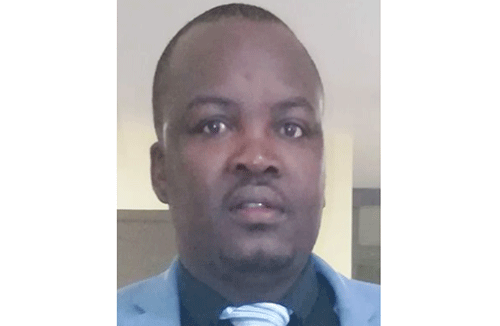The recent publication by New Era on Ovahimba women engaging in copper mining as a survival strategy amid recurrent droughts raises important questions about the balance between economic necessity and cultural preservation. While this initiative may appear to provide immediate relief, it is crucial to address the broader implications for both the Ovahimba community and their environment. The efforts of these women to dig for copper highlight their resilience and adaptability in the face of ongoing drought conditions in the northwestern Kunene region. However, such activities can have far-reaching consequences that threaten their traditional way of life and cultural identity. The magnetism of immediate financial gain must be weighed against the potential erosion of their heritage. Mining activities pose significant risks to the local ecosystem. The disturbance of land can disrupt natural water flows, and destroy essential habitats. The potential contamination of underground water sources is another pressing concern, which could affect both the health of the community and the viability of their agricultural practices. The implications for future rainfall patterns and water availability are particularly alarming, especially given the region’s vulnerability to climate change. It is imperative that any mining activities are conducted legally, and with proper oversight. Questions regarding whether clearance has been granted for such operations must be addressed. Local communities should not be sidelined; rather, they must be included in the decision-making processes that impact their land and resources. Foreign investors should be encouraged to collaborate with the Ovahimba people, ensuring that benefits are shared equitably, and that the communities remain at the forefront of resource management.
To effectively address the challenges posed by drought, we need to explore sustainable management practices that empower indigenous communities. Initiatives like green schemes and aquaculture can provide viable alternatives to mining, promoting food security while safeguarding the environment. Investments in sustainable agriculture, water conservation, and renewable energy sources can help mitigate the impacts of drought without compromising cultural integrity. As we consider the plight of the Ovahimba women and their engagement in copper mining, it is crucial to adopt a holistic perspective that prioritises sustainability and community well-being.
By fostering policies that support indigenous rights and promote environmental sustainability, we can help secure a future where economic resilience does not come at the expense of cultural heritage or ecological health. Let us advocate for solutions that honour the rich traditions of the Ovahimba while ensuring their survival in a changing climate. Let us reach out and find sustainable management strategies to mitigate the recurrent drought and come up with amicable solutions. What could be the answers of these women? If they were given opportunities to choose economic activities, I guess they would not opt for this traditionally male work of mining instead of gardening, horticulture, and other tourism-related business ventures.
Sustainable solutions
Implement systems to capture and store rainwater during the wet season, providing a reliable water source during droughts.
Boreholes and Wells
Establish sustainable boreholes with solar-powered pumps to ensure access to groundwater, while minimising environmental impact.
Drought-resistant breeds
Promote the use of livestock breeds that are more resilient to heat and drought conditions, helping to sustain their pastoral lifestyle.
Rotational grazing
Encourage rotational grazing practices to prevent overgrazing and allow natural vegetation to recover, enhancing the resilience of the ecosystem.
Traditional crop cultivation
Support the cultivation of traditional drought-resistant crops alongside livestock to diversify food sources without compromising cultural practices.
Permaculture techniques
Introduce permaculture practices that align with traditional farming methods to improve soil health and water retention. Involve the Ovahimba community in decision-making processes regarding natural resource management, ensuring their voices and cultural values are respected.
Cultural conservation initiatives
Develop programmes that promote cultural heritage while integrating sustainable practices, fostering pride and commitment to environmental sustainability.
Training programmes
Implement workshops on sustainable practices, water management, and climate adaptation tailored to the community’s unique needs and knowledge.
Knowledge sharing
Facilitate exchanges with other communities facing similar challenges to share experiences and innovative solutions. Recognise and integrate traditional ecological knowledge into modern sustainability practices, reinforcing the importance of cultural identity.
Storytelling and oral traditions
Use storytelling as a tool for education and awareness, passing down knowledge about sustainable practices and cultural heritage.
Collaborate with NGOs
Partner with non-governmental organisations focused on sustainable development to secure resources and expertise for implementing these solutions.
Access to microfinancing
Create opportunities for the Ovahimba people to access microloans for sustainable business initiatives that align with their cultural practices.
Policy advocacy for policies that support indigenous rights, sustainable land use and access to water resources, while promoting the cultural identity of the Ovahimba people. Food-for-work initiatives, whereby communities are taking responsibility to come up with projects and benefit.
Instead of sitting and waiting for government, communities can find a lasting solution to their crisis, if they own it. We need to move from a reactionary approach when dealing with drought to becoming proactive. The region is blessed with sources of water at some places known as “otuharui.” Agriculture projects can result in food self-sufficiency.
Compliment to the correctional services for reaching out.
*Mauiipi Hartley holds a master’s degree in public policy and management from the International University of Management. He writes in his private capacity.



